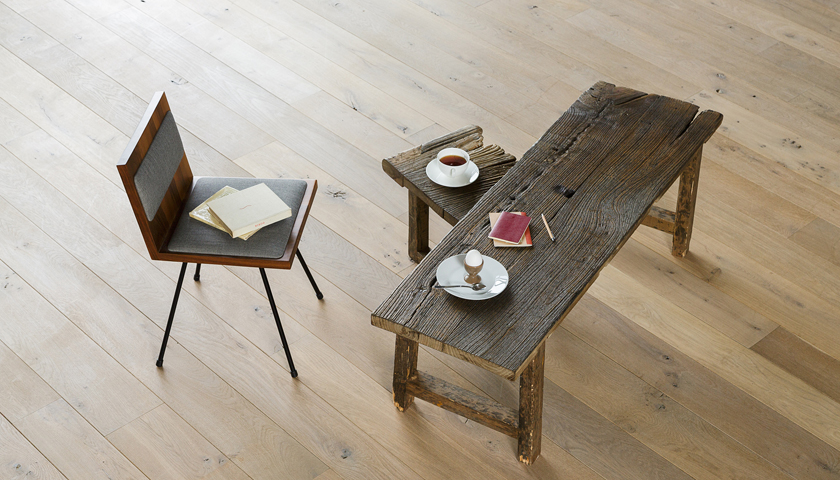Wabu (Wood After Being Used), wood furniture made entirely with reclaimed wood that’s hand-crafted, affordable and easy-to-assemble with no tools required, is now available on Indiegogo.
“It is our duty to leave the planet in better shape than we found it or at least try our best to do so,” said wabu Co-founder Carl Bardawil, who launched the company with his sister, Christelle. “Every two seconds, man destroys an area the size of a football field, meaning 80,000 acres of forest disappears every day – representing 50,000 square miles a year.”
With the purchase of each piece in the wabu collection, consumers are making a personal commitment to sustainability – without compromising on style when it comes to their furniture décor.
In creating a wood furniture collection without cutting down any trees, Carl and Christelle have traveled the world in search of abandoned wood to repurpose it into an elegant furniture collection. The team’s first collection is made from 100-year-old doors from the south of Asia that are transformed into unique, handmade stools, stands, tables, benches and lamps.
Each of the one-of-a-kind, minimalistic designs are true to the texture and character of the original wood.
“The wabu collection brings an earthy and rustic accent to any space whether it’s your living room, dining room, office space or outdoor patio,” Bardawil said.
Bardwil said wabu also represents the first time fine-crafted furniture has been designed so it can be easily assembled by hand in less than two minutes, with no tools required.
“Usually, unique pieces like these must be delivered pre-assembled, which makes the furniture difficult to move later, or are shipped in multiple pieces with tools required and very difficult to assemble on site,” he said. “Instead, wabu furniture pieces are shipped to the consumer’s home in boxes that can be reused for future moves…and can be assembled quickly and easily. It’s not only a great product, but wabu is about the whole experience – from the moment it’s delivered up until it’s assembled and used.”
Bardawil notes that when creating wabu, they were inspired by the traditional Japanese aesthetic Wabi-sabi, which is often described as beauty that is “relative versus absolute, personal versus universal and one-of-a-kind versus mass-produced.”
“This shows in how we design and treat our wood furniture,” he said. “We let the actual imperfections of the wood speak volumes by keeping a light and unique finish that lets the natural beauty of this wood shine. We also embodied the impermanent aspect of Wabi-sabi by making them easy to take apart and reassemble.”
Bardawil adds that deriving the name of their furniture line from “Wood After Being Used” represents the perfect acronym for furniture made for environmentally-conscious consumers that protects the planet and the ecosystem.
“With 80 percent of the world’s forests already destroyed, our mission is to give new life to used and discarded wood,” Bardawil said. “We have a profound respect for nature, and we believe in the pure essence of its beauty. We’re the generation that can contribute to positive change in the environment.”
For more information and to pre-order wabu furniture at heavily-discounted early-bird prices during crowdfunding, visit the wabu campaign page on Indiegogo.
